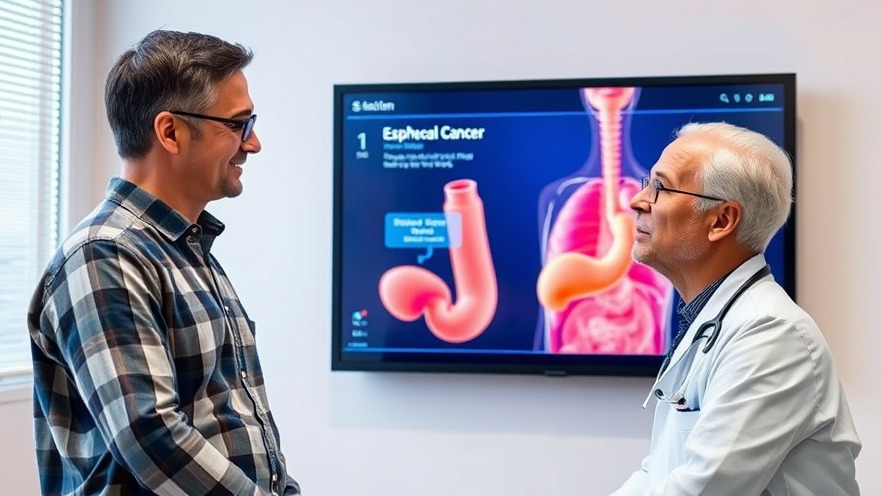
The Importance of Early Detection in Esophageal Cancer
Understanding the esophagus and its functions is crucial in the fight against esophageal cancer. This form of cancer, which affects the tube connecting the throat to the stomach, often emerges silently, making early detection vital. Identifying symptoms like persistent heartburn, weight loss, or difficulty swallowing early allows health professionals to stage the cancer more accurately, subsequently improving treatment outcomes.
How Diagnosis and Staging Works
The process of diagnosing esophageal cancer typically starts with a thorough medical history and physical examination. If there is a suspicion of cancer, doctors may order imaging tests or perform endoscopic evaluations. Techniques like an endoscopy, where a thin tube with a camera is inserted down the throat, can visualize the esophagus closely. If cancer is confirmed, staging the disease becomes paramount. Staging measures how far the cancer has spread, influencing treatment choices and patient prognosis.
Innovative Techniques for Improvement
Recent advancements in medical technology—such as AI and machine learning—can enhance the accuracy of cancer diagnostics. For concierge medical practices, adopting these novel technologies can set them apart as leaders in patient care. These innovations not only improve diagnostic precision but also deepen patient trust, a critical element in a concierge practice where relationships play a central role.
The Role of Patient Communication in Cancer Care
A significant aspect of improving outcomes in esophageal cancer lies in effective communication. Patients must feel empowered to discuss symptoms and express concerns with their healthcare providers. An empathetic approach can alleviate anxiety and foster a cooperative atmosphere, encouraging patients to be active participants in their care.
Empowering Patients through Education
Educating patients about esophageal cancer, its symptoms, and the importance of early detection can significantly affect their health journeys. Health professionals can leverage community seminars and informational resources to raise awareness. By detailing what patients should look for and how to navigate their health systems, concierge practices can enhance their reputation for patient-centered care.
Conclusion: Call to Action
As healthcare providers, it's imperative to ensure that patients receive the right messages regarding cancer risks, symptoms, and steps for early detection. By integrating advanced technologies in practice and fostering open dialogues about health, medical concierge practices can significantly impact their communities. Don't wait for symptoms to escalate; encourage your patients to seek out timely consultations and assessments. Strong patient care starts with informed patients, so take steps to promote awareness today.
 Add Row
Add Row  Add
Add 




Write A Comment